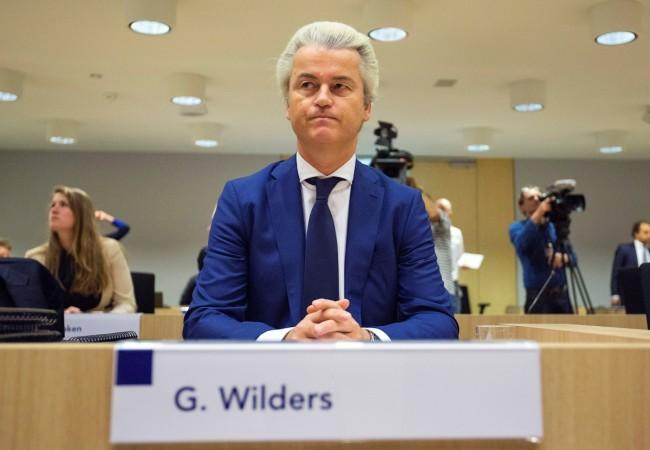
Europe has its eyes set on the Netherlands general elections, scheduled to be held on March 15, which is set to be a bellwether for the political sentiment in the continent. After the unexpected success of Brexit and election of Donald Trump, will the Dutch elections follow suit on the wave of right-wing populism?
The results of Netherlands elections is set to give us some insight on what to expect from the upcoming French and German elections.
Let's have a look at how the Netherlands elections work:
Netherlands election system
The Netherlands is a fractured political environment and is based on proportional representation, which means a lot of parties get to represent themselves in the final forming government. A coalition of parties is imperative to form a government in the country.
The Dutch Parliament Tweede Kamer offers 150 seats for the parties and out of these a total of 76 are required to formulate a majority. This year's government is likely to comprise at least four to six different parties.
Which are the major parties and who are their leaders?
People's Party for Freedom and Democracy (VVD) - Liberal Party
VVD is led by the current Netherlands Prime Minister Mark Rutte and has held a majority in the Dutch government since 2012.
USP: Liberal, party of status quo
Partij van de Arbeid (PvdA) - Labour Party
PvdA is led by the current Deputy Prime Minister Lodewijk Asscher. Asscher has recently faced criticism for his austerity measures.
USP: Advocates for jobs, housing and health
Party for Freedom (PVV) - Far right
Headed by politician Geert Wilders, the party's popularity is slowly gaining momentum among the Dutch voters. Wilders is Euro-skeptic and staunchly anti-Islamic and has gained popularity in the country owing to the burgeoning nationalist and anti-immigrant sentiment in the nation.
USP: Far right, wants ban on Muslim immigrants, closure of mosques, ban on Quran sales and EU exit
Socialist Party (SP)
Headed by Emile Roemer, the party primarily focuses on policies including affordable healthcare.
USP: Anti-EU, focused on fight against poverty
Christian Democratic Party (CDA)
The party is led by Sybrand van Haersma Buma, who recently followed Geert Wilder's stance on EU, stating that significant reforms are required in the European Union.
USP: Focused on traditions, family and health
Democrats 66 (D66)
Led by Alexander Pechtold , D66 is a pro-EU party and is often compared to UK's Liberal Democrats. The party also looks to increase the Democrats' stance in government with policies including legalising the production of marijuana.
USP: Pro-EU, progressive stance
Green Links (GL)
Led by 32-year-old Jesse Klaver, the party has garnered appeal among younger voters.
USP: Environmental issues, opposes unequal distribution of wealth
Fringe parties: There are other parties contending in the elections which are on the fringe like Denk which is pro-migrants and their descendants. Another one is 50Plus, which represents the voters of above the age of 50 and advocates the rights for retired people.
Who is Netherland's Donald Trump- Geert Wilders?
Wilders, who is known as the "Dutch Trump" shares a lot of similarities with the United States President Donald Trump. The Dutch politician last year also showed his support for the American Republican businessman in the 2016 US Presidential elections and adopted the slogan "Make the Netherlands Great Again."
However, Wilders is more extreme in his views in comparison to Trump and is reportedly more consistent. Riding on the strong anti-immigrant wave across the world, he is strongly anti-Islamic and has called for the closing of all the mosques in Netherlands. Wilders has also called for taxing the women who wear hijab in the country and has likened the holy Quran to Adolf Hitler's Mein Kampf.
Polls over the months have shown Wilders' party getting a strong momentum in the country. However, his party was shifted to the second position by the current PM's party VVD in the latest polls.
When will the results be announced?
The results of the election will be announced overnight. Reports state that the votes will be counted on the same day of the elections and it is anticipated that a clear winner will be declared by 6 am local time. However, it will not be immediately clear which parties will form the coalition government as the discussion could take even months.

















